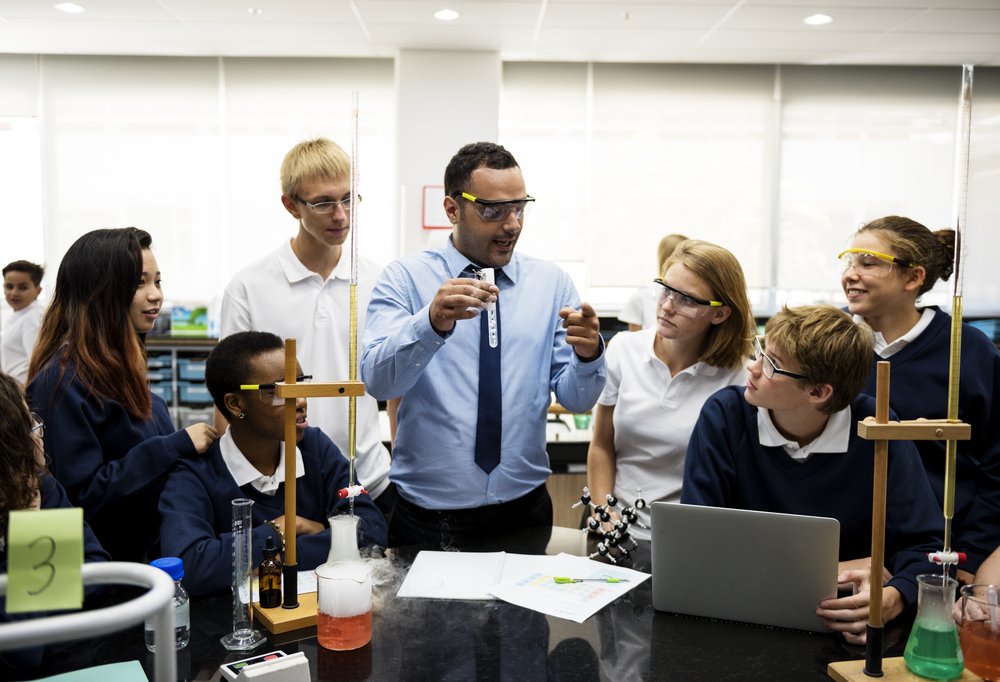The morning after the night before.
This year’s ASE Conference was held in Birmingham in January. Always a good cure for New Year’s blues, it was a lively mix of ideas, projects and sharing of experiences. A key topic of conversation for many people involved with the secondary phase was comparing notes about how it went last summer with the new GCSEs in Science. These were a game changer and, according to one awarding organisation representative, the biggest change we’ve seen in the last twenty years.
It wasn’t difficult to find teachers who, overall, were fairly pleased with the way it had gone. This shouldn’t be a surprise; despite some challenging specifications and much talk of challenge, data showed that proportions of students crossing key thresholds in results tables barely shifted by more than a percentage point in separate sciences. Combined Science was harder to compare (much better than Core but not as high as Additional) but it looks as if more students are coming out with two good GCSE grades. There ought to be pats on the back all round the science department here – this is down to skill and effort at the laboratory chalkface. The situation now, of course, is that such is the wealth of data analysis that drilling down to find out where efforts are most needed becomes more scientific.
It now feels as if some of the challenges and opportunities shaping up are ones which have a longer term provenance and will shape aspects of education for several years to come. One of these is the EEF report ‘Improving Secondary Science’ which is seriously good, seriously well written and seriously accessible. It sets out seven aspects in which research shows that if you get these things right, then not only are students more likely to get good grades but also to be better engaged with STEM subjects and more likely to follow education, training and careers in this area. What I like about the report is that it has things that can be picked up and done now that stand a good chance of making a difference. If you haven’t read it, well, you should. Read it here. This is a game changer and likely to frame the debate about how we secure further improvements for years to come.
Another hot topic is the impending change to the Ofsted Inspection Framework. This is still work in progress but there’s a fair degree of transparency to the process and the research that’s going into the changes is being shared. I think it’s fair to say that in recent years’ inspection has been largely an outcomes driven process. If the progress and outcome data is good, you’re probably getting it right in terms of teaching and learning. The key terms now are intent, implementation and impact (I bet somebody got a bonus point for coming up with the little alliterative gem) which we’ll be hearing a lot more about. What I thought was interesting is that schools that inspectors found to have ‘curriculum quality’ had features such as having a progression model at the heart of the curriculum and having a clear purpose for assessment. In other words, there’s a premium on thinking through and sorting out how your science curriculum is assembled and delivered. Incidentally there are some powerful links between this and the EEF report, not least in areas such as memory, literacy and assessment. The draft inspection framework is up – you can see it here.
I think it’s fair to say that it was a positive and upbeat conference. There’s a sense of tectonic plates settling down for a little while and an opportunity to build effective practice. I can live with that.
By Ed Walsh
Ed Walsh is a freelance consultant, specializing in science education. A teacher for twenty years and a team leader for twelve of those, he now writes and edits curriculum materials, designs and delivers CPD and works with science departments to improve the quality of their provision.
View secondary Science resources from Collins, including books written and edited by Ed.



